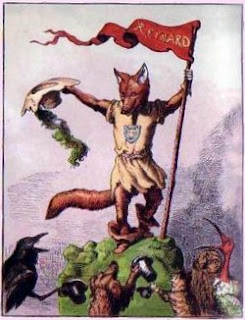I'm in the process of taking down my blog of long ago, Creating Text(iles) -- I stopped writing in it and said farewell in May of 2007, but I kept it on the server, in case anybody needed it, but I don't think they do anymore, so I'm going to save the money; the blog and all its archives will disappear into wherever it is that internet sites go towhen they disappear.
But before I do that, I'm going through and saving any bits of writing that seem to me to be worth keeping track of. By which I mean that they amuse me.
Here, for instance, is a useful explanation of the Whiskey Rebellion, taken from one I wrote in 2006:
**************************
Back when Our Federal Government was very young, it discovered it needed a bunch of money, on account of having gotten terribly into debt whilst winning freedom from the imperialist teadrinkers. So it created a bunch of taxes, one of which was the tax on whiskey. Now, this was a problem for the farmers out in Western Pennsylvania, which was at that time The Western Frontier, cause whiskey was what they were shipping back to the Eastern Cities. Why was this, you ask? Well, I'll tell you. It was cause 1) the Eastern Cities didn't need wheat and rye; 2) the Eastern Cities needed a lot of whiskey; 3) grain, turned into whiskey, was WAY more profitable than grain in its unadulterated state, and 4) grain, turned into whiskey, was WAY more transportable than grain in its unadulterated state, and since the roads sucked, this was an Issue.
Shall we have a new paragraph? Why not. Ok. So the local farmers needed to sell whiskey, and they were opposed to paying taxes on it. Why? Because 1) they operated in a barter economy, unlike the denizens of the Eastern Cities, and did not have cash to hand, and 2) as far as they could tell the federal government wasn't doing anything for them, such as keeping them safe from the local native population, which was, understandably, annoyed by their presence, but that's a whole nother story, or, indeed, making the roads passable.
So. The farmers didn't pay the tax. They were told they had to pay the tax. They didn't pay the tax. Tax collectors appeared. The farmers did Bad Things to them. The farmers were served with writs. They ignored them.
The farmers marched on Pittsburgh in order to burn it down, but were met by the citizens of Pittsburgh, who had set out tables of food and drink. The farmers burnt down one barn, after, I guess, having been placated with sausage and beer. The federal government sent soldiers. It took SO LONG for the soldiers to get here (see sucky roads, above), that everybody had disappeared. So the soldiers didn't have to do much except stand around, but this was proof that the federal government meant what it said, by God, so we should all behave.
The end.
So there was a civil war, though there weren't a lot of casualties, thank goodness. Actually, the Whiskey Rebellion was a model for a nearly tolerable civil war, I'm thinking. Keep it short, keep it simple, keep it fairly safe. Have no massacres. And in the end, since there were soldiers stationed in the county, there was a Sudden Cash Flow, and everybody could pay the taxes. Also, since there were soldiers stationed in the county, the roads got better. This is called Dramatic Irony.
01 May 2010
Subscribe to:
Posts (Atom)

